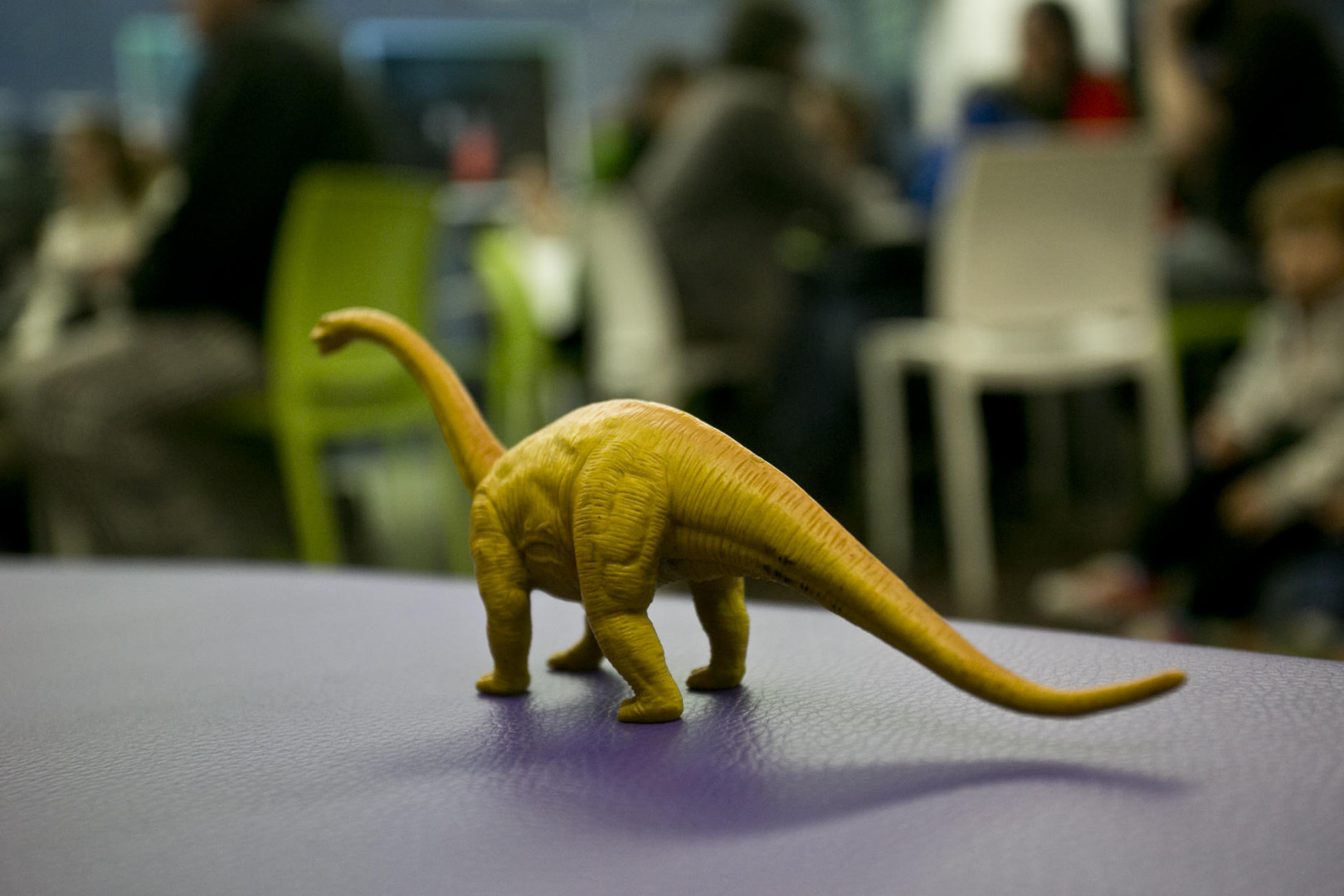Winter holidays are not long now and C3 Cultural Center for Science dedicates its cultural programs to children, teenagers and families to enjoy the best of science in different languages. The cultural billboard opens from July 19 to July 30, Wednesday to Sunday with free admission from 12pm to 7pm and goes one hour before each activity. To know more, enter Web Dell C3
Below are the various activities broken down by age and a brief overview.
//From the age of 4
Location and mapping of paleogames
Wednesday to Sunday, 12 noon to 7 pm.
A free mobile space for kids to enjoy drawing and sharing different board games. This year, dinosaurs will be the theme.
Workshop | A dinosaur is pretty cool
Saturdays July 22 and 29 and Sundays July 23 and 30, at 4:00 p.m.
Workshop to create your own dinosaur using the wool embroidery technique while listening to the stories of the poet Florencia Cotagnone.
// 6 to 10 years
Workshop | Description of fungi
Sundays, July 23 and 30, 3:00 pm to 4:30 pm.
Based on illustrations by Juan Elizalde from the Guardabosques studio, they will discover the diversity of fungi in our region, their most important characteristics and why they are essential to the functioning of ecosystems.
Radio Drama “Science Mysteries, Readings with Consequences”
Saturdays, July 22 and 29 – Sundays, July 23 and 30, at 5:00 p.m.
A radio theater experience that interweaves projections on readings of literature, science, music, sound effects and some science fiction and mystery stories and comics.
//8 to 12 years
Technology Zone: Raising Scientific Careers
Wednesday to Sunday, 1:00 PM to 6:00 PM.
A 40-minute experience to immerse yourself in workshops on programming, industrial automation, renewable energy, biochemistry and 3D design and printing, mediated by knowledgeable educators in each field. This space is made possible thanks to the management and economic support of the Banco de la Nación Argentina Foundation and the Siemens Foundation.
Programming
Wednesday to Sunday 5 and 6 pm | Maker Space
Workshop Timings: 1:00 PM, 2:00 PM, 3:00 PM and 4:00 PM.
July 19 and 26 | Robotics workshop
July 20 and 27 | Electricity and Renewable Energy Workshop
July 21, 22, 23, 28, 29 and 30 | Programming workshop with Arduino
Paleoart Workshop: In Search of Dinos
Wednesday, Thursday and Friday, 2 and 4 p.m.
A workshop for those who want to learn more about the world of paleontology, learn about fossils, characteristics of different types of dinosaurs, work done by paleontologists, and how myths are reconstructed by paleontologist Damian Francisco Aquino. , with advice from Santiago Reilly.
Workshop | Location of inventions
Wednesday, Thursday, Friday and Saturday, 3 and 4:30 p.m.
The renowned C3 Maker Space offers two editions per day to explore various techniques such as Arduino programming, anaglyph animation, 3D printing and stop motion techniques.
Programming:
Wednesday, July 19 and 26 | Interactive maps. By programmer Augustine Scursi
Thursday, July 20 and 27 | Animate with Light Author Laura Nieves takes over
Friday July 21 and 28 | Encourage 3D printing. The author is responsible for Nome Play
Saturday July 22 and 29 | Paleomotion. Tamandua is in charge of the study.
//families
Theater | A Tyrannosaurus takes up a lot of space
Wednesday, Thursday and Friday, 3:00 pm | + for 7 years
A Tyrannosaurus Occupies a Lot of Space is an exciting and fun game aimed at children and inviting them to think about the dangers of tyrannies. The plot revolves around a family that tries to resolve their conflicts by accepting a tyranny in an intelligent but not very friendly way. However, what seemed like an easy and fun solution soon turns into a threat for everyone. Paying tribute to Elsa Bornemann’s famous work, On Elevation Agramis, the work features scientific advice from paleoartist Santiago Reil.
Drama: Free Edition by Marcos Arano Fortessa based on a text by Gabriel Graves.
Artists: Christian Amadeo, Federico Paulucci, Nicolas Eisen, Leonardo Costa, Maria Agustina Becerra, Magali Melia
Directed by: Marcos Arano Forteza
Public Production: Science Culture Center | Ministry of Science, Technology and Innovation of the nation
Permanent Exhibition “Place of Doubts”
Wednesday to Sunday, 12 noon to 7 pm | +7 years | Free travel space
From its three rooms, El Tiempo, El Azar and La Información, it approaches science from different angles, through interactive modules.
Reading and listening point
Wednesday to Sunday, 12 noon to 7 pm | Free travel space
As part of the Read Science, Read Future Reading program, the Cencia al Toque youth collection Hola, Cencia and all titles part of the Cencia con Ojos de Niño children’s collection will be available at this location with the aim of spreading readings. Science for children, adolescents and young adults is a way to guarantee access to scientific culture. In addition, Capucha, Magdalena Fleitas, Lalo Mir, Tomás Fonsi, Mariana Baggio, Delfina Pignatiello and Julian Cartoon can listen to episodes of the Escucha Ciencia podcast with Diego Colombec.
Library on
Wednesday to Sunday, 12 noon to 7 pm | Free lane space
During these winter holidays, the Popular Science Library will offer a series of meetings and activities that promote an approach to reading scientific texts as another way to ensure access to scientific culture. The library contains bibliographies, publications and special journals that address scientific issues comprehensively and interdisciplinary. During your visit, our librarian will be on hand who will be able to recommend specific readings that will complement your experience.
Laboratory | Fungal world
Wednesday to Sunday – 12 noon to 7 pm | Free lane space
Zoom, the C3 lab, invites us to learn how fungi, small or giant, are essential to ecosystems to communicate with each other and survive on Earth for 3.5 billion years. Neither animal nor vegetable, fungi have their own kingdom and there are more than 1.5 million yeasts, molds and mushrooms, some of which are toxic, but most of them have an unusual way of connecting the planet.

